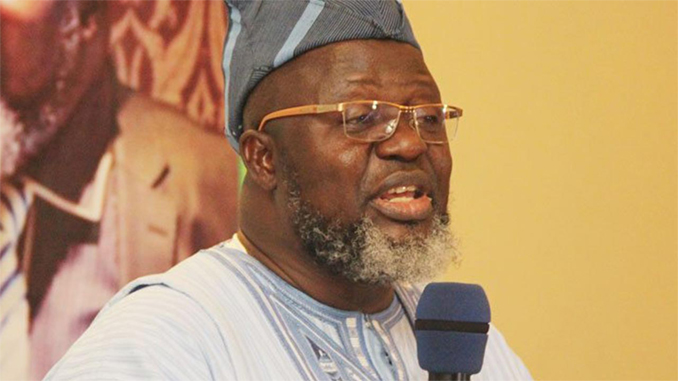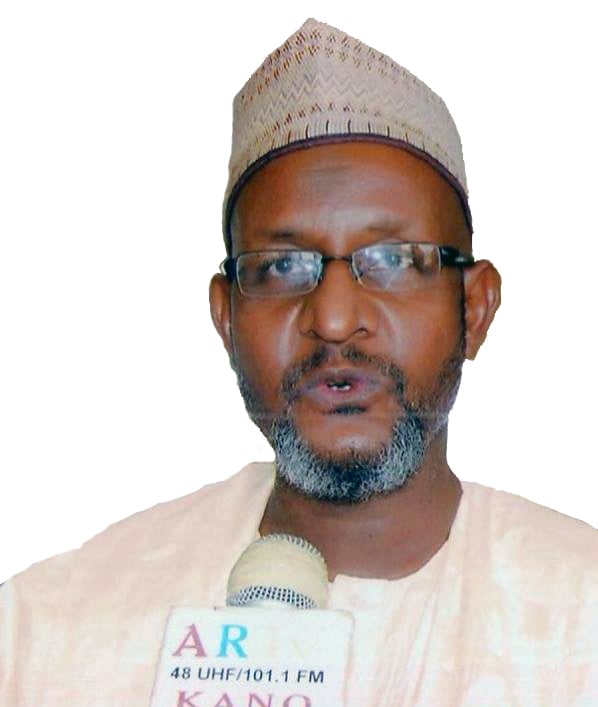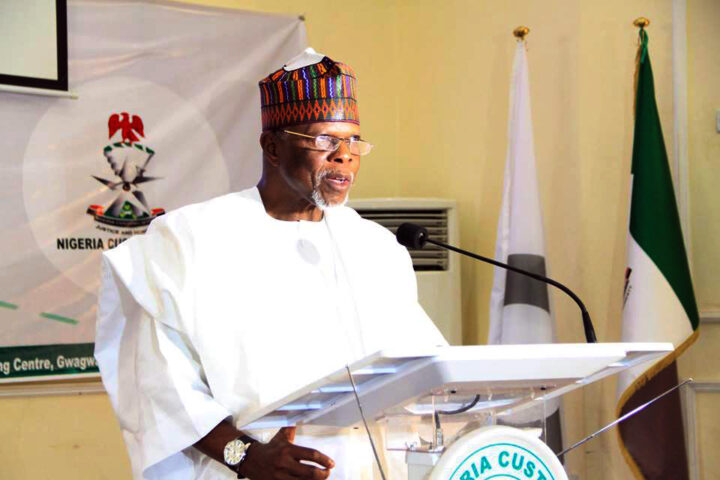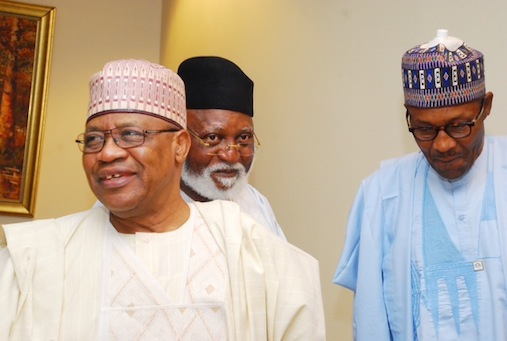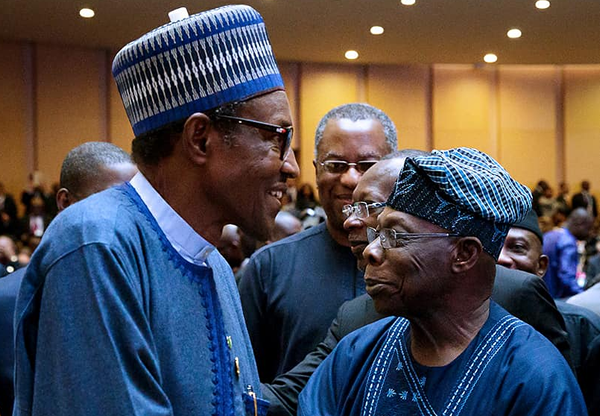Adebayo Shittu
By no means a recent phenomenon, the fad of political appointees groveling before their principal is a concept that undergirds Third World politicking. Some people even claim that it is as ancient as the African. In spite of the several positive attributes of the African, his tendency to kowtow in the presence of his benefactor and snigger at him from behind is a very dispiriting attribute of his. Every society has a name for such characters. It is said that Africans merely carried to a very mischievous level their penchant to respect elders. Africans have the tendency to praise-sing and destroy with their mouths in superlatives in equal proportion. So while they do obeisance before their benefactor this minute, singing his praises to high heavens, they turn full circle the next minute, stinging him with their mouths like a bee.
Famous Yoruba Sakara musician, Late Yusuff Olatunji, situated the jurisprudential implication of respect for elders in Yorubaland. He perhaps identified the reverence to which society holds the rich and the powerful. According to him, Yoruba, like virtually all Africans, even venerate the rich more than they do the elderly. He propounded a theory which, perhaps before him was evident in traditional African societies but never brought out as succinctly as he did. In his Olowolagba vinyl, Olatunji sang that the man who has the propensity to enrich is the senior to the elderly, even if the elderly share similarity of years of existence with Metusellah. When the wealthy enter a place where the multitude is gathered, he said, salutations from even those old enough to sire him – who, according to him, have abundance in ages of existence like the proverbial calendar – would be as massive as if the wealthy had ounces of flesh bigger than an average human being. In summary, Olatunji said the rich is the elderly, no matter his age and indeed, age is merely a quantity and not quality. In my submission, this perhaps was the age that a destructive imprimatur was put on the ancient veneration for the brain rather than the pocket.
There are several positive offshoots from the traditional African’s respect for elders. Today, in a world which underscores individualism and has scant regards for collectivism, the African is easily singled out of the pack. He is unique. The Yoruba in particular can embarrass the other person with his suffusion of respect. A major attribute that surrounds his language is veneration of the elderly, no matter how scant the days the one he respects spent on earth before him. This is why, even among twins, respect is counseled for the twin that comes to the world before the other. But this respect for elders has become so cancerous that it easily mutates into groveling or what is called eye-service.
The veneration of those who occupy high offices could be said to have emerged when Africa attained the status of a colony. T. M. Aluko’s Chief, the Honourable Minister is the story of the novel’s hero, Alade Moses, an African intellectual, who is recalled to his fatherland, Afromacoland, the imaginary newly independent country in which the novel is set. He was recalled from a tour organized by the British Council, to become minister. The novel is used to depict the myriad difficulties men of power confront in post-colonial African governments, including the self-projected venerations they get from hangers-on and those who wanted favour and offices. Those who grovel before men in power work with the thesis of an understanding of their psychology. Praises unlock the bars of their brains and unzip the wallets of state funds deposited in their care.
Advertisement
Power and glory are where this groveling is found most. If you hear the unreported story of the First Republic, especially the accounts of those who witnessed the sour relationship between Chiefs Obafemi Awolowo and S, L. Akintola, you will be confronted by the evil of groveling. Awolowo suffered heavy friends’ casualty immediately the tide turned for his political career. Erstwhile friends who told him that he was second to God, who made his Oke Ado, Ibadan home their permanent abode, immediately the darkness of politics came, easily turned apostates, changing principal like a VVF patient changes diapers. It has even gone worse today as tales of those who stole billions from political offices become paupers a few years after. When ‘enough is enough’ becomes so difficult to put a mark upon, the crave to amass “enough” drives political appointees and elected office holders into insatiate appetite for the public till. Laughable and indecorous descent into groveling before the principal who is seen as the authority behind the satisfaction of this ideal then reaches an unbelievable height.
Public groveling reached its top under General Sani Abacha. The goggled General was venerated to high heavens. Groups upon groups elbowed one another for his attention and his largesse. Alhaji Wada Nas provided governmental impetus. Youth Earnestly Asks for Abacha, led by a misguided Igbo youth and others of same atrocious hue, sprang up. By the time Abacha was killed by world powerful forces, those who groveled before him simply dissolved into thin air and scrambled for the soul of another victim.
A number of typecasts about then Aspirant for Nigerian Presidency, General Muhammadu Buhari, have since collapsed since he mounted the saddle. The first was that he was so insouciant to mundane groveling and cheap praise-singing that he would not stand any of such. Alas, we were wrong. Ex-President Olusegun Obasanjo brought home the tragic collapse of that typecast succinctly recently. While 73 Nigerians were being committed to their undeserved and early graves in Benue State, seven governors of Nigeria, including the objectionable man in Kogi’s Lugard House, had filed to the presence of Buhari to ask him to seek a second term. Not coincidentally, all the governors are seeking a second term themselves.
Advertisement
Perhaps one groveller who has successfully carried this trade to a fascinatingly obtuse height is Minister of Communications, Adebayo Shittu. A colourless legal practitioner who, pre-being made minister, had a renown which was more profound in his material lack than a meaningful contribution to his immediate society, Shittu has, since being made minister by Buhari, exhibited gross disrespect for logic and commonsense in his public speeches. Shittu it was, who went to the office of his home state governor dressed in hand gloves and accompanied by a wife whose face no one could see.
Like Thomas Jefferson’s imperishable quip that “political offices are as acceptable here (US) as elsewhere but whenever a man casts a longing eye on them, a rottenness begins in his conduct,” since Shittu declared intention to be Oyo governor in 2019, his propensity for rottenness and tendency to act like a typical tout and a common Daniel Kanu to Buhari have received unprecedented fillip. Perhaps respecting the ancient saying that even among thieves, honour is a watchword, Shittu was reportedly stopped at the penultimate Federal Executive Council (FEC) meeting by the Secretary to the State Government while demonstrating an unbelievably petty, self-serving and insensitive bit of his human construction. No sooner had he started serving members of FEC a Buhari-For-2019 faze cap than he was stopped in his tracks for its palpably unfeeling implication at this moment when Nigeria is at a national crossroads. This is a Shittu who, from what this writer gathered, cannot win his polling booth in Saki where he hails from. He claimed that he is Buhari’s election coordinator in the South West and commissioned an office which is hardly befitting of a local government chairman campaign headquarters, bringing into town fossilized characters in Nigerian politics whom no one would look twice if they passed them by on the road.
If Buhari wants to regain the respect of those who thought he was above the pettiness of politicians and was impermeable to sycophancy, he should advertise his disdain for characters like Shittu openly. The Shittus show to the whole world that there is no difference between the Buhari government and Goodluck Jonathan’s where self-confessed ex-users of weeds like Ayo Oritsejafor were spiritual counselors who claimed to hold minute-by-minute tete-a-tete with God.
Ngige’s billion Naira indecorum
Advertisement
Minister of Labour and former governor of Anambra State, Chris Ngige was quoted upper week as having said that the Muhammadu Buhari government had spent N1billion on late former Vice President, Alex Ekwueme. He was however almost immediately quoted to have disclaimed this patently idiotic statement. But knowing Nigerian political pundits and their antics very well, the disclaimer may be a smart way of staving off arrows that have since been shot at the diminutive Anambra State-born politician.
The earlier statement was one of the shocks that followed the remains of the highly respected Nigerian leader to his grave. Even among Igbo whom Ngige apparently wanted the purport of the statement to sink into their subconscious, the highly contentious statement, ostensibly made to secure his daily bread and ingratiate self into the heart of Buhari, the shock wave which followed it was unbelievable. Was it made to curry the electoral favour of Igbo in 2019? Was it made to show that even after his Satanic statements against the South East, Buhari loves the Igbo after all? If Buhari spends that much on the dead, does he spend anything of the Nigerian purse on the welfare of the living? So many questions. But why do the worst of us always get to the best of those highly burnished positions?
A TROUBLING EPISTLE
Can somebody please ask Governor Ayodele Fayose to please stop embarrassing decency? Must he always talk? A few days ago, stung by a suit filed by the former governor of the state, Kayode Fayemi and ex-commissioner, Dapo Kolawole which necessitated a stoppage of payment of refund of money spent by the state on federal roads, Fayose had cried to the world that civil servants in the state should hold the duo of Fayemi and Kolawole responsible for the inability of his government to pay their salaries. This was a duo he, Fayose had organized a kangaroo commission to discredit.
This, to anyone who has been following the parlous turn of events in a state administered by one of the most rambunctious governors in the history of Nigeria, is very troubling. Indeed, it is a perfect example of the Yoruba wise saying that it is the dirty and unkempt widow who would hold the death of her husband responsible for her not being able to take her bath for two weeks . Fayose’s Ekiti is tops among governors owing civil servants salaries in Nigeria. Was repayment of the money spent by his predecessor part of what he campaigned to the people of Ekiti State he would use to bring them good life?
Advertisement
What must death catch me doing?
The reader of this column, what do you have in your hands as certificate, an OND, HND, M.A., M.Sc., PhD? It’s time to go get another one! Let’s clone the example of ex-President Olusegun Obasanjo who, at about 80 years of age, is still pursuing knowledge. I am writing this to encourage someone somewhere: even if you cannot set forth at dawn as Wole Soyinka admonished, please set forth at dusk!
Advertisement
To God be the glory, on Thursday, I finished writing the last of my LLB exams at the University of Ibadan. For four years, I put up with the inconveniences of being a law student. I wore the traditional white/black uniform religiously, attained, at a conservative estimate, 98% attendance in class, in spite of my killing schedule and escaped by the whiskers my son being in same faculty with me. I was classmate to children I could conveniently sire, 99.9% of whom were not born when, in 1995, I finished my M.Sc. in Political Science from the same university or were probably in SS1 or SS2 when, in 2010, at same University of Ibadan, then Deputy Vice Chancellor of the university, foremost Political Communication scholar in Africa and my Supervisor, Professor Adigun Agbaje; Professor Alade Fawole of OAU, my External Examiner; Professor Tunji Adeshile, my Internal/External Examiner and Dr. Remi Aiyede, my M.Sc. classmate, were grilling me as I sweated to defend my PhD thesis. I conveniently answered “Sir” and “Ma” to lecturers who should be my colleagues by virtue of my credentials and hurtled kilometers daily to be in school for, most times, 8am lectures.
My personal testimony is that, the claim that education has sunk to the base in Nigeria may not be true after all. In my classmates at the University of Ibadan Class of 2017, I saw the Gani Fawehinmis, the Olisa Agbakoba etc of a future Nigeria. Those kids are damn brilliant!
Advertisement
I am encouraged by the strides of one innocuous exemplar at the University of Ibadan, Sunday Saanu. For years, he was a newspaper reporter in Ibadan, Oyo State, armed with a Higher National Diploma and a Masters in Communication Arts. Told that he could not proceed for a doctoral, Saanu began all over from the undergraduate level and got a Bachelor of Science, an M.Sc and is today pursuing a doctoral degree. As for me, my credo is: death must meet me acquiring knowledge.
Advertisement
Views expressed by contributors are strictly personal and not of TheCable.
Add a comment

